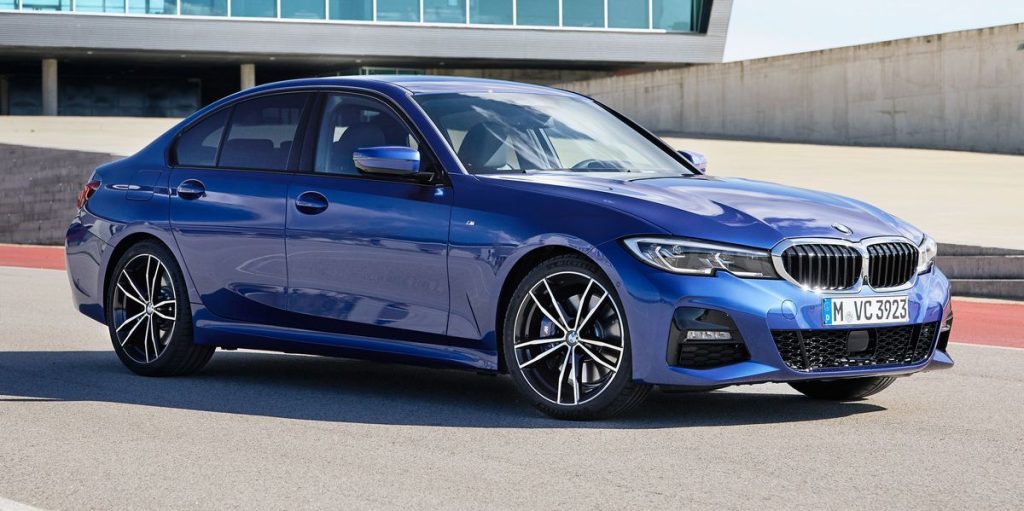In a continuing industry trend, Mercedes launched a new annual $1200 plus tax subscription service to unlock improved performance on several electric vehicle models. The “Acceleration Increase” subscription doesn’t involve any parts that get upgraded, but instead allows access to motor performance that is already there.
This subscription is available on the Mercedes-EQ EQE and Mercedes-EQ EQS sedan and SUV models.
According to The Drive, the subscription increases torque, boosts horsepower by 20-24%, and lowers the 0-60 mph time between 0.8 and 1 second depending on the model.
Conversely, Mercedes is intentionally throttling a vehicle unless the consumer pays them money every month. And this is a large complaint with this new revenue stream the auto industry is testing out and beginning to implement.
Earlier this year, BMW tested an $18 monthly subscription in several countries for access to the heated seat function. While BMW also had a yearly plan for $180, three years for $300, or unlimited for $415, the automaker received a lot of backlash for the move — even prompting some New Jersey lawmakers to propose legislation against such subscription services.
The proposed legislation would make it unlawful for manufacturers to charge for subscriptions of services that “utilizes components and hardware already installed on the motor vehicle at the time of purchase or lease by the consumer and would function after activation without ongoing expense to the dealer, manufacturer, or any third-party service provider.”

BMW has a history of pushing the subscription envelope, after they backed away from the idea of charging $80 a year to use Apple CarPlay or Android Auto in 2019. This didn’t deter the company, however, as they pushed forward a year later with their “Operating System 7.” This system laid the groundwork which allows the automaker to remotely access features like the heated seats, adaptive cruise control, etc. and enable or disable them — which they can then monetize after through subscriptions or one-time payments.
Mercedes just last year unveiled a $576 annual subscription service in Germany for a rear-wheel steering system, despite every Mercedes-Benz EQS model reportedly having the physical components already installed. This did come standard on all US-equivalent vehicles.
Toyota’s Remote Connect has apps usable from smartphones and other devices, but the $8 a month service was required to use the remote start feature on the physical key fob — one that only used radio wave frequencies just like any other standard key fob.
Tesla’s Full Self-Driving and Cadillac’s Super Cruise driver assistance systems both charge customers, as well as Porsche with its Taycan electric model’s range-optimization feature.
Like it or not, subscription services are already here for vehicles and will continue to proliferate without regulatory action. There is no “the market will correct itself” if all the manufacturers adopt it: the prevalence of video streaming services and microtransactions in the gaming industry are a testament to that. Subscriptions for services that require upkeep are arguably understandable, but should manufacturers be able to charge for access to features already installed on a device?
The industry likes to point to flexibility — “most users don’t need heated seats in the summer, so they can cancel a subscription during those months” or “maybe an owner only occasionally needs driver assist features like adaptive cruise control for sporadic long-distance driving, so they can pay as they go.”
That sounds reasonable, but, again, these are features already physically present on the vehicle. Not only that, but many subscription models thrive on users forgetting to cancel. Regardless, should a manufacturer be able to demand money for something already installed well after the owner has finished paying for it? Can they truly say they own it at that point? This is a sentiment that bears striking resemblance to “right to repair” arguments.
Coming out of the odd market created by the pandemic, the automotive industry hasn’t bounced back due to continued impacts of the pandemic itself — like chip shortages — and other factors like Russia’s invasion of Ukraine. Despite demand, the drop in global sales coupled with the increased longevity of some vehicles has the auto industry looking for other revenue streams.
General Motors reported over $2 billion in earnings last year on its subscription services, so despite the general pushback against the idea, the practice is quickly gaining traction. This does lead to question how consumers may react if regulatory action doesn’t take place.
One such action — that is already happening — is jailbreaking. Tesla has routinely rolled back features via software on used Tesla, leading some to hack or jailbreak their vehicle to re-enable those features. Jailbreaking, as defined by PCMag, is “to remove a restricted mode of operation.” This is more commonly done to smartphones.
While it is hard to say if such actions will become commonplace as vehicles and devices become increasingly “smart,” it does bring to mind the “Piracy, it’s a crime” anti-copyright infringement PSAs from the mid-2000s. The campaign was mocked and memed heavily, particularly the first line: “you wouldn’t steal a car.” One such popular iteration was “you wouldn’t download a car.” With jailbreaking vehicles now a thing, oddly enough, you kind of can.
Author: George Ftikas Jr.












